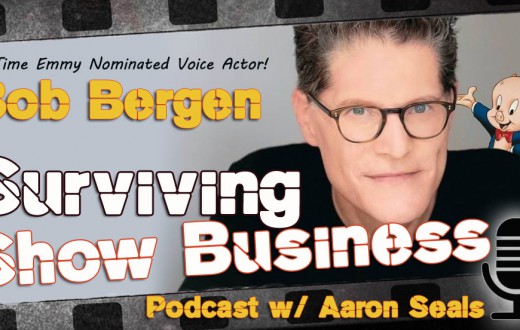Creating a strong, memorable impression during an acting audition is a no brainer for securing roles and advancing your career. This extensive manual aims to assist actors at any stage of their career in getting ready for auditions, addressing important elements such as choosing an appropriate monologue, grasping the character’s essence, refining cold reading abilities, and handling anxiety. Upon finishing this piece, you will be better equipped to tackle auditions with assurance and expertise.
Selecting the Right Monologue
Understand the Role and Production: Tailor your monologue choice to the style and tone of the production you’re auditioning for. If it’s a comedy, choose a comedic piece; for a drama, select accordingly. This shows your understanding of the project and your versatility as an actor.
Showcase Your Strengths: Choose a monologue that highlights your strengths. If you excel in portraying complex emotional characters, opt for a piece that allows you to express this.
Avoid Overdone Pieces: Steer clear of monologues that are frequently used in auditions. Choosing a less common piece can help you stand out.
Head over to DirectSubmit® from NYCastings for FREE Monologues!
Understanding the Character
Deep Character Analysis: Spend time analyzing the character. Understand their background, motivations, and how they change throughout the piece.
Connect Personally: Find personal connections to the character. Drawing parallels between your experiences and the character’s can add depth to your portrayal.
Research and Contextual Understanding: Research the time period, author’s intent, and cultural context if applicable.
Practicing Cold Reading Skills
Improve Reading Fluency: Practice reading new texts aloud regularly. This improves your ability to understand and convey new material quickly.
Making Quick Choices: Learn to make bold, informed choices about a character or scene quickly. This skill is valuable when you’re given a script on the spot.
Maintain Engagement with the Material: Even when reading from the script during a cold read, maintain engagement with the material. Practice glancing down at the script briefly while keeping your focus and connection with the audience or casting director.
Handling Nerves
Breathing Exercises: Practice breathing exercises to calm nerves. Deep, controlled breathing can help manage anxiety and keep your focus sharp.
Visualization Techniques: Visualize your success before the audition. This positive mental rehearsal can boost confidence.
Physical Warm-Up: Engage in a physical warm-up routine to release tension and prepare your body for performance.
Creating a Strong Impression
Wardrobe Choices
Reflect the Character: Dress in a way that suggests the character without being a costume. This helps the casting team envision you in the role.
Comfort and Confidence: Wear clothes that make you feel confident and are comfortable to move in.
Body Language
Confident Entrance: Enter the audition room confidently. Your entrance can set the tone for your audition.
Awareness of Non-Verbal Cues: Be aware of your body language. Non-verbal cues like posture, gestures, and facial expressions are powerful tools in storytelling.
Interaction with Casting Directors
Professionalism and Courtesy: Always be professional and courteous. Your interaction with everyone in the room is part of the audition.
Be Prepared for Questions: Be ready to answer questions about the piece, your interpretation, or your experience. This shows your thoughtfulness and preparation.
Bonus Tips
Memorization: If possible, memorize your monologue. This demonstrates professionalism and dedication.
Versatility: Prepare a couple of contrasting monologues to showcase your range.
Feedback and Practice: Seek feedback from trusted mentors or peers and practice regularly. Constructive criticism is invaluable for growth.
Mental Preparedness: Prepare mentally for rejection. Auditioning is a learning process, and not every audition will result in a role.
Stay Informed and Educated: Continuously educate yourself about the craft. Attend workshops, read books, and stay informed about industry trends.
Networking and Relationships: Build and maintain positive relationships within the industry. Networking can open doors to new opportunities.
Stay Healthy: Maintain your physical and mental health. A healthy actor is a more effective actor.
The above tips may seem like a lot to handle, but it’s important to know that every audition is an opportunity to grow and learn, regardless of the outcome. Stay dedicated, keep working on your craft, and most importantly, believe in your ability to captivate and inspire.







